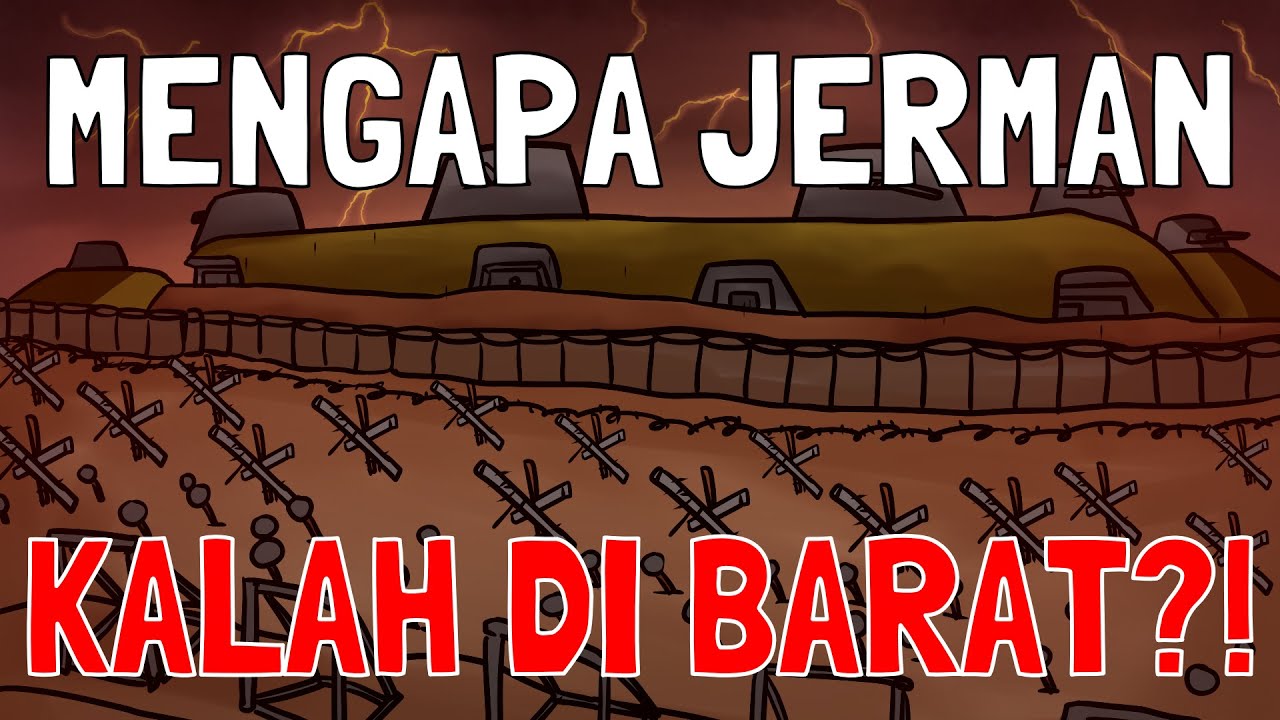Kuidas Stalin tegelikult võitis II maailmasõja?
Summary
TLDRThe transcript discusses the historical narrative surrounding the Soviet Union's role in defeating Nazi Germany during World War II, emphasizing the importance of Allied support, particularly from the United States and Britain. It highlights key events, including military assistance, logistical support, and political negotiations, revealing a complex interplay between propaganda and reality. While the Soviet Union's efforts were heroic, the document underscores that substantial aid from Western allies played a crucial role in their wartime successes. It challenges the notion that the Soviet victory was solely due to internal strength, presenting a nuanced view of international cooperation.
Takeaways
- 😀 The narrative of World War II is often shaped by victors, with the Soviet Union emphasizing its people's contributions to defeating Nazi Germany.
- 😀 U.S. President Franklin D. Roosevelt pledged assistance to the Soviet Union shortly after Germany's invasion in June 1941.
- 😀 Initially, some American political figures suggested supporting Germany if it began to win against the Soviet Union.
- 😀 By 1948, it was noted that Western aid constituted only a small percentage of Soviet production, challenging the narrative of overwhelming Western support.
- 😀 Soviet leader Nikita Khrushchev acknowledged that the USSR would not have succeeded without Western assistance during the war.
- 😀 Hitler underestimated the Soviet Red Army, predicting a swift collapse of Soviet resistance.
- 😀 Poor weather conditions significantly hampered German military operations near Moscow in late 1941.
- 😀 British Prime Minister Winston Churchill and Roosevelt worked closely to provide material support to the Soviet Union, including aircraft and vehicles.
- 😀 The U.S. Lend-Lease Act allowed for significant military aid to the USSR, including food, vehicles, and other essential materials.
- 😀 The assistance received by the Soviet Union from Western allies was substantial, with millions of tons of supplies delivered throughout the war.
Q & A
What was the significance of the Soviet Union's victory over Nazi Germany according to the transcript?
-The transcript highlights that the victory was attributed to the self-sacrificing struggle of the Soviet people and emphasizes the critical role of American assistance in achieving this victory.
How did the American perspective on aiding the Soviet Union evolve after the start of Operation Barbarossa?
-Initially, President Roosevelt expressed the need to support the Soviet Union, but there were conflicting opinions in the U.S., with some officials suggesting that the U.S. should help Germany if the Soviet Union was losing.
What did Stalin express about Western aid to the Soviet Union in his communications?
-Stalin noted that without Western aid, the Soviet Union would have struggled significantly, and he repeatedly emphasized the necessity of receiving more tanks and aircraft from the Allies.
What did the tables mentioned in the transcript reveal about the balance of military power on June 22, 1941?
-The tables indicated that the Red Army had a substantial advantage in the number of tanks and aircraft compared to the German forces at the onset of the invasion.
What were the key factors that hindered the German invasion of the Soviet Union according to the transcript?
-The Soviet Army initially faced setbacks, but adverse weather conditions, such as the harsh winter, played a significant role in hindering German advances.
What type of assistance did the United States and Britain provide to the Soviet Union during the war?
-The U.S. and Britain supplied the Soviet Union with a variety of materials, including aircraft, tanks, trucks, and food aid, totaling millions of tons throughout the war.
How did public sentiment in Britain and America influence the aid provided to the Soviet Union?
-Public sentiment led to individual citizens in Britain sending care packages to Soviet soldiers, showcasing a grassroots effort to support the Soviet war effort beyond official governmental aid.
What was the impact of the Lend-Lease Act on the Soviet Union's war efforts?
-The Lend-Lease Act allowed for significant military and material aid from the U.S. to the Soviet Union, which was crucial for sustaining their military operations against Nazi Germany.
What challenges did Stalin express regarding the timeliness and volume of aid from the West?
-Stalin expressed frustration over the slow and insufficient deliveries of aid, arguing that the amount was inadequate to meet the urgent needs of the Red Army during critical moments of the war.
According to historians referenced in the transcript, how decisive was Western aid in the outcome of the war?
-Some historians argue that while Western aid was important, the Soviet Union could have ultimately defeated Hitler, albeit with more time and potentially greater losses, as they had significant industrial capacity.
Outlines

Cette section est réservée aux utilisateurs payants. Améliorez votre compte pour accéder à cette section.
Améliorer maintenantMindmap

Cette section est réservée aux utilisateurs payants. Améliorez votre compte pour accéder à cette section.
Améliorer maintenantKeywords

Cette section est réservée aux utilisateurs payants. Améliorez votre compte pour accéder à cette section.
Améliorer maintenantHighlights

Cette section est réservée aux utilisateurs payants. Améliorez votre compte pour accéder à cette section.
Améliorer maintenantTranscripts

Cette section est réservée aux utilisateurs payants. Améliorez votre compte pour accéder à cette section.
Améliorer maintenantVoir Plus de Vidéos Connexes

ASAL USUL PERANG DUNIA 2

World War II - The European Theater

درس الحرب العالمية الثانية " الأسباب والنتائج" (السنة الثالثة اعدادي)

Bagaimana Jerman Kalah dalam Pertempuran di Front Barat? - Invasi D-Day (FULL)

How the War in Europe Influenced Conflict in Asia - Pacific War #0.6

Gr 9 SS History | Term 1 Lesson 1 | An introduction to WW2
5.0 / 5 (0 votes)
